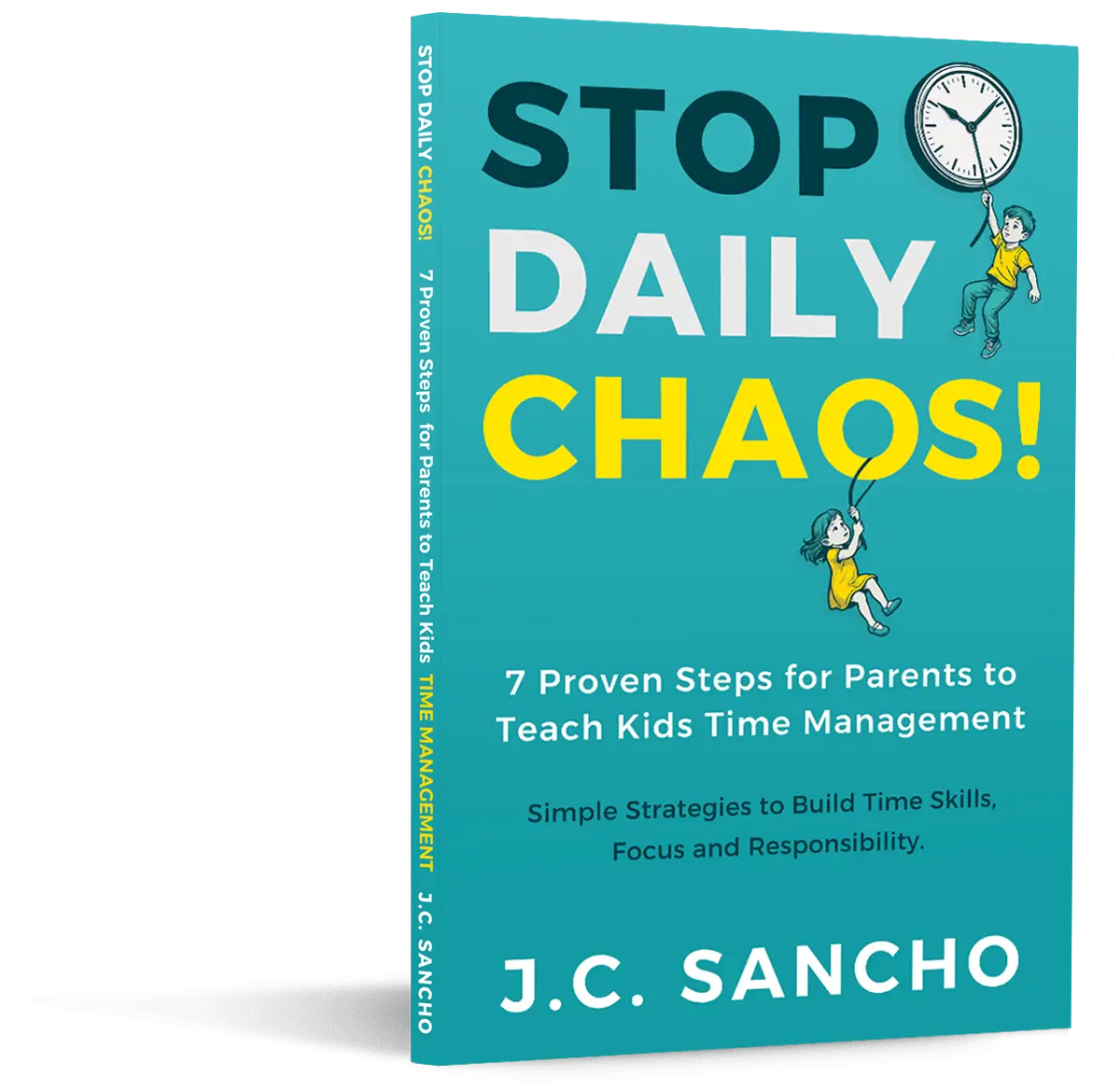A simple weekend reset that sets us up for a smooth week
Sunday evening hits differently when you’re a parent. That familiar knot forms in your stomach as you survey the chaos: permission slips buried under art projects, lunch boxes growing science experiments, and enough dirty laundry to outfit a small village. You know Monday morning will arrive like a freight train, and you’re already behind.
I discovered the weekend reset by accident, during a particularly brutal stretch when my three kids were all in different schools with different schedules. After one too many mornings spent excavating clean socks from Mount Washmore while simultaneously signing field trip forms with my teeth, I knew something had to change.
The solution wasn’t revolutionary. It was embarrassingly simple: dedicate two hours every Sunday to preparing for the week ahead. Not cleaning the entire house. Not meal prepping for a month. Just two focused hours that would buy us five mornings of relative calm.
The Laundry System That Actually Works
Start with laundry on Saturday morning, not Sunday night. This timing matters more than you’d think. When you begin Saturday morning, you have the entire weekend as a buffer. Kids can help sort clothes into piles while watching cartoons. The washer runs while you make breakfast. By Saturday afternoon, clean clothes are folded and ready.
Here’s the specific routine that transformed our laundry situation: Every family member gets one mesh bag hanging on their bedroom door. Throughout the week, socks and underwear go directly into these bags. On Saturday morning, zip the bags closed and throw them straight into the washer. No more hunting for missing socks or debating whose underwear belongs to whom.
For the rest of the clothes, I taught my kids a simple sorting system using three baskets in the hallway: darks, lights, and towels. Even my five-year-old can handle this. The key is making it visual and obvious. We put picture labels on each basket until it became automatic.
By noon on Saturday, the first loads are dry. This is when you employ the “outfit bundle” technique. Instead of putting clothes away in drawers, create five complete outfits for each child. Stack them together: underwear, socks, pants, shirt. Place these bundles on a shelf in their closet at kid height. Monday morning, they grab a bundle. No decisions, no searching, no drama.
Sunday’s Two-Hour Power Session
Sunday afternoon, between 3:00 and 5:00, works best for most families. Kids are past their post-lunch crash but not yet in pre-bedtime meltdown territory. You’re not trying to accomplish everything during these two hours. You’re targeting specific pain points that derail weekday mornings.
First, tackle the backpacks. Dump everything out on the kitchen table. Yes, everything. You’ll find treasures: moldy orange peels, crumpled tests that needed signatures two weeks ago, library books accumulating fines. Sort into three piles: trash, needs action, goes back in the backpack.
While you’re sorting, have your kids check their folders for any papers needing signatures or responses. Sign them immediately. Put them directly back in the backpack. Don’t create a “deal with later” pile. Later never comes on Monday morning.
Next, prep the launch pad. This is a designated spot near your door where everything needed for tomorrow morning lives. Backpacks go here, but so do shoes, jackets, and any special items needed for the next day. If Tuesday is library day, the library books go on the launch pad Sunday night. If Wednesday means soccer practice, the gear bag sits ready.
The Lunch Prep That Saves Your Sanity
Lunch prep doesn’t mean making five sandwiches on Sunday that will be soggy by Wednesday. Instead, create a lunch station in your fridge and pantry. Use a plastic bin in the fridge for lunch items only: string cheese, yogurt tubes, apple slices in water, carrot sticks. In the pantry, designate a basket for lunch snacks: granola bars, pretzels in portion bags, applesauce pouches.
On Sunday, portion out five servings of any items that need dividing. Cut five apples and store them in water with a splash of lemon juice. They’ll stay crisp all week. Portion crackers into small containers. Make a big batch of pasta salad or pinwheel sandwiches that actually improve after a day in the fridge.
The game-changer is the lunch chart. Post it on the fridge with five columns, one for each day. Each child writes or draws what they want for lunch that day. Sunday night, they make their choices for the week. No more morning negotiations about whether they want turkey or ham. They already decided.
Managing the Weekly Calendar Without Losing Your Mind
Every Sunday during your reset, sit down with your phone and a physical calendar. Yes, both. The phone holds the master schedule, but the physical calendar on the wall is what kids can see and understand. Transfer every appointment, practice, early dismissal, and spirit day from your phone to the wall calendar using different colored markers for each family member.
While you have the calendar out, prep for each day’s unique demands. Is it picture day on Thursday? Put the picture order form and check in an envelope, labeled, and place it on the launch pad. Early dismissal Wednesday? Set a phone reminder for Tuesday night to pack an extra snack.
Create a “Week at a Glance” sticky note for your car dashboard. List any unusual pickup times or after-school destinations. This saves you from the panic of sitting in the school pickup line trying to remember if today was early release or if your daughter has dance class.
The Evening Routine That Makes Mornings Possible
Sunday night sets the tone for your entire week. After dinner, run through a specific checklist with each child. Are tomorrow’s clothes laid out? Is homework in the backpack? Is the backpack on the launch pad? Are shoes by the door? This takes five minutes per child when it’s routine.
Set up breakfast the night before, but keep it simple. Put cereal bowls and spoons on the table. Set out the cereal boxes. Place fruit in a bowl on the counter. The goal isn’t to serve a hot breakfast every morning; it’s to remove decisions and searching from your morning routine.
Program your coffee maker. Seriously. This small act of self-care means you wake up to the smell of coffee instead of the panic of running late. It’s a tiny gift to your future self that pays dividends in patience and sanity.
Making It Stick When Life Gets Messy
Some weekends, the reset won’t happen. Someone will be sick, you’ll be traveling, or you’ll simply be too exhausted to care about Monday. That’s fine. The beauty of this system is that it’s forgiving. Even doing half of it helps. Even just prepping the backpacks and signing papers prevents Monday morning disasters.
Start small if two hours feels overwhelming. Choose the one thing that causes the most morning stress in your house. Maybe it’s lost shoes or unsigned permission slips. Focus your entire weekend reset on solving that one problem until it becomes automatic. Then add another element.
Involve your kids as they get older. My ten-year-old now handles his own backpack cleanout and lunch prep. My seven-year-old sorts laundry and makes her outfit bundles. They’re learning life skills while lightening your load.
The weekend reset isn’t about perfection or having an Instagram-worthy organized home. It’s about identifying the specific friction points that turn your mornings into battlegrounds and systematically eliminating them. When Monday morning comes, and it always does, you want to face it with clean underwear in the drawer, signed permission slips in the backpack, and coffee already brewing. These small victories compound into calmer mornings, which lead to better days, which create happier families.
The real magic happens around week three, when the reset becomes automatic. You’ll find yourself naturally starting laundry on Saturday morning and clearing backpacks on Sunday afternoon without thinking about it. Your kids will begin laying out clothes without reminders. The chaos won’t disappear entirely – you’re still parenting, after all – but it becomes manageable. And manageable, on a Monday morning with three kids and a full-time job, feels like winning.
Further Reading: NPR: How to Keep House While Drowning



